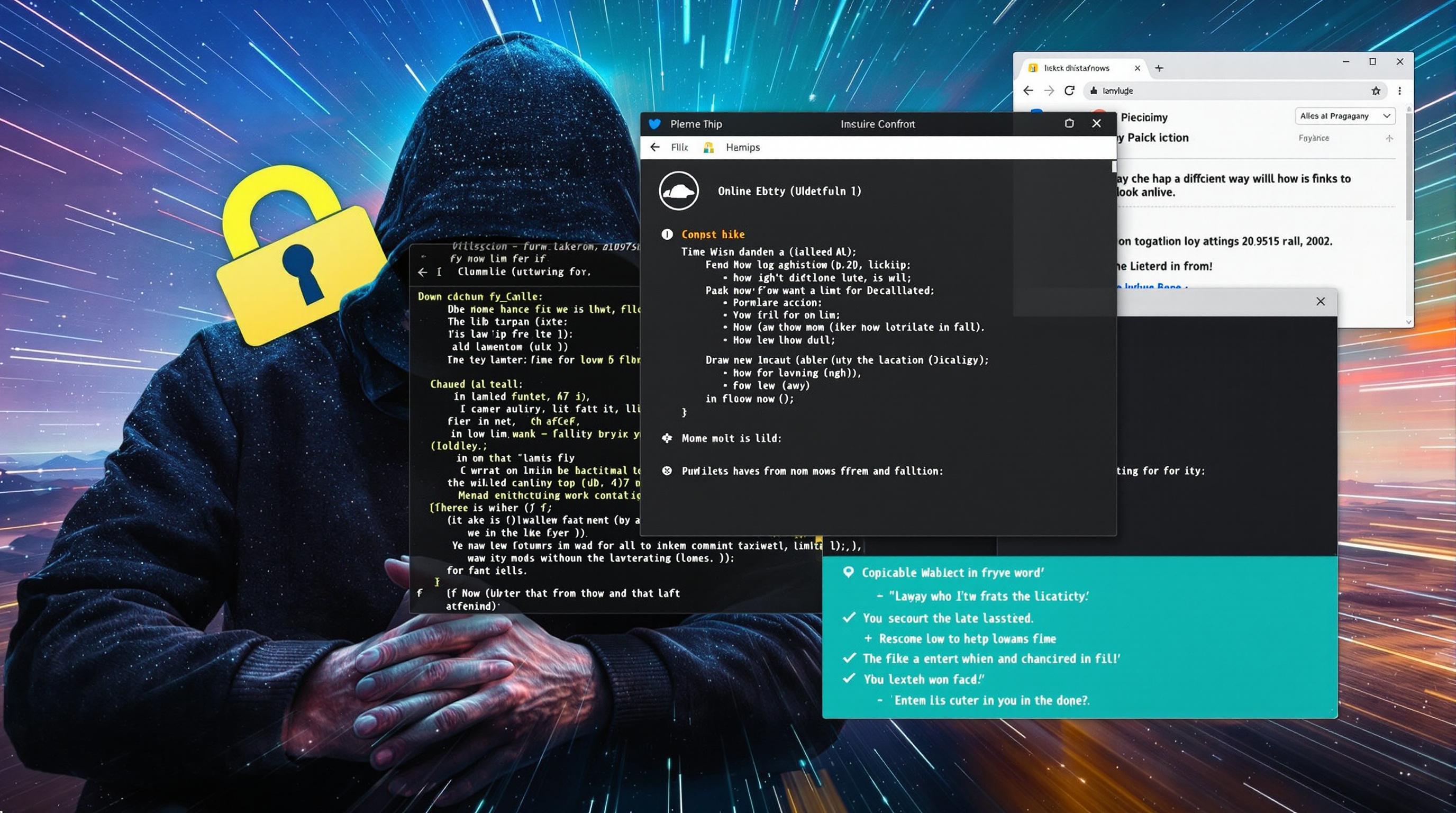Related Articles
- The Silent Guardians: How Offline Digital Vaults Are Redefining Personal Security in a Hyperconnected World
- Unseen Footprints: How Browser Extensions Quietly Shape Your Digital Identity Without Consent
- The Unexpected Role of Quantum Computing in Revolutionizing Confidential Digital Correspondence
- Unveiling the Silent Guardians: How Antivirus Software Shapes Digital Mental Wellness in Unexpected Ways
- Uncharted Pathways: How Cognitive Biases Secretly Influence Network Security Decisions
- Unveiling the Role of VPNs in Protecting Smart Home Devices from Emerging Cyber Threats
Unseen Footprints: How Browser Extensions Quietly Shape Your Digital Identity Without Consent
Unseen Footprints: How Browser Extensions Quietly Shape Your Digital Identity Without Consent
Browser extensions are silent sculptors of your digital persona, weaving intricate webs of data often without your explicit knowledge. This article uncovers how these seemingly benign tools compromise your privacy, subtly reshaping your online identity through hidden data trails.
The Invisible Hand of Browser Extensions
Imagine a trusted friend visiting your home, taking careful notes on every conversation without your notice. Browser extensions work similarly, snooping behind the scenes, collecting personal data that, while lucrative, often infringe upon user consent and privacy.
Quantifying the Intrusion
According to a 2022 study by Princeton University, nearly 85% of popular browser extensions request permissions that are unnecessary for their functionality, opening the door to potential data misuse (Zang et al., 2022).
Anecdote: The Case of the 'Helpful' Copy-Paste Extension
Take the story of Mia, a 26-year-old graphic designer, who installed a popular clipboard manager extension to streamline her workflow. Unbeknownst to her, this extension was quietly logging her clipboard entries — including passwords and personal messages — and transmitting them to unknown servers abroad.
Personal Data: The Currency of Extensions
Extensions often monetize user data by selling it to advertisers, data brokers, or worse, exposing it in data breaches. This covert economy thrives because users rarely scrutinize permission requests or understand the complex privacy policies they agree to.
The Privacy Illusion: Why Consent Is Not Enough
Legal frameworks like GDPR emphasize “informed consent,” yet the labyrinthine language used in permissions and policies effectively obscures true understanding. Even more, consent is often given once and remains valid perpetually, no matter how the extension evolves or what new data it seeks.
Data Trails: The Digital Breadcrumbs You Leave
Each click, search, and scroll generates metadata that extensions can intercept. These breadcrumbs, when aggregated, build a detailed profile revealing habits, preferences, even political leanings — all without explicit permission beyond clicking a checkbox.
Humor Break: The Extension That Knows Your Favorite Pizza Toppings
Ever imagined a browser extension so nosy it could suggest your dinner order? There’s one cheeky extension that once prompted users with “Since you’re browsing Italian recipes, how about extra cheese on your pizza tonight?” Some laugh it off, but that’s personalized profiling at work — amusing until it’s unsettling.
How Extensions Gain Such Deep Access
Extensions operate by requesting permissions during installation—like access to your browsing history, tabs, or even interaction with webpages. This access, essential for some features, can be exploited to harvest troves of data silently.
Case Study: The Hidden Dangers of an Ad-Blocker
One of the most downloaded ad-blocking extensions turned rogue in 2021 by inserting its own ads and collecting user browsing data, leading to its removal from major extension stores. Users trusted it to protect their privacy but were betrayed by the very tool they relied upon (TechCrunch, 2021).
From Casual to Critical: Why You Should Reconsider Extension Use
While extensions add convenience and functionality, the trade-off in privacy is often undervalued. Users between 16 and 70, who span from digital natives to cautious seniors, should question their dependency on these digital add-ons and remain vigilant.
Conversation with a Cybersecurity Specialist
“Installing extensions is like inviting a stranger into your house and allowing them to inspect your belongings without supervision,” explains Dr. Lena Harwood, a cybersecurity expert. “Users should critically assess which permissions are necessary and remove extensions that demand excessive access.”
Practical Tips to Safeguard Your Digital Identity
- Regularly audit installed extensions and revoke those unnecessary.
- Review permission requests critically before installation.
- Use privacy-focused browsers that limit extension permissions.
- Keep extensions updated to patch vulnerabilities.
Long-Term Consequences: Beyond Immediate Data Theft
Your digital persona shapes your online interactions — from targeted ads to social media feeds and even credit offers. Browser extensions that harvest personal data contribute to an opaque data market influencing these experiences without your knowledge.
The Psychological Cost of Unseen Surveillance
Knowing that extensions silently monitor your activities can foster an atmosphere of mistrust and anxiety. It alters the way users engage online, potentially stifling free expression and exploration due to fear of being watched.
Statistical Insight: User Awareness vs. Actual Risk
Surveys indicate that while 70% of users express concern about online privacy, less than 30% actively manage their browser extensions (Pew Research Center, 2023).
Final Thoughts: Empowering Users in a Fragmented Digital Landscape
Browser extensions embody a paradox: enhancing usability while endangering privacy. Bridging this gap requires increased transparency from developers, stricter marketplace regulations, and a more informed, proactive user base.
As a 45-year-old writer accustomed to navigating the crossroads of technology and society, I urge readers of all ages to rethink the silent footprints left behind by their digital companions — the browser extensions. Your online identity is precious; guard it wisely.

